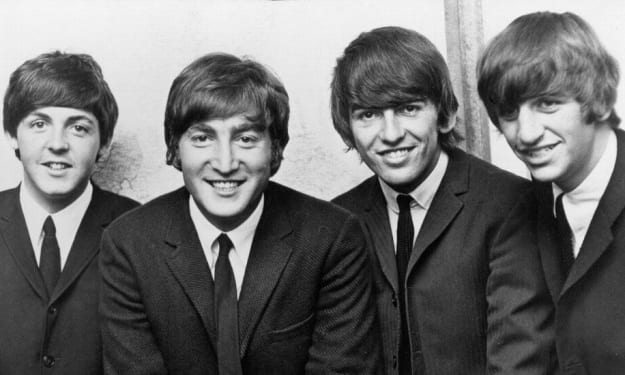AC/DC: The Life and Legacy of Rock 'n' Roll Titans
by David Pieringer

AC/DC: The Life and Legacy of Rock 'n' Roll Titans
AC/DC, formed in Sydney, Australia, in 1973, is one of the most iconic and enduring rock bands in music history. Known for their electrifying performances, powerful guitar riffs, and raw, no-nonsense rock sound, AC/DC has left an indelible mark on the world of music. This article explores AC/DC’s early years, rise to fame, musical evolution, the impact of key members, cultural influence, and enduring legacy.
Early Years and Formation
AC/DC was founded by brothers Malcolm and Angus Young, who had emigrated from Scotland to Australia with their family. The band's name, AC/DC, was inspired by the abbreviation for alternating current/direct current electricity, symbolizing their high-energy performances. The original lineup included vocalist Dave Evans, bassist Larry Van Kriedt, and drummer Colin Burgess. However, the band's lineup changed frequently in the early years.
In 1974, Bon Scott, an experienced and charismatic frontman, replaced Dave Evans as the lead vocalist. Scott’s distinctive voice and wild stage presence became central to AC/DC's identity. The lineup stabilized with Malcolm and Angus Young on guitars, Bon Scott on vocals, Mark Evans on bass, and Phil Rudd on drums.
Rise to Fame
AC/DC's debut album, "High Voltage," was released in 1975 and showcased their hard-hitting rock sound. The album included hits like "Baby, Please Don't Go" and the title track "High Voltage." Their follow-up albums, "T.N.T." (1975) and "Dirty Deeds Done Dirt Cheap" (1976), further established their reputation for high-energy rock music.
The band's international breakthrough came with the release of "High Voltage" (1976), a compilation of tracks from their first two Australian albums, tailored for the international market. Their relentless touring schedule and dynamic live performances helped build a dedicated fan base.
In 1977, AC/DC released "Let There Be Rock," which included the iconic title track and "Whole Lotta Rosie." The album's success solidified their status as rock 'n' roll heavyweights. Their next album, "Powerage" (1978), continued to build on their success with tracks like "Riff Raff" and "Sin City."
Musical Evolution and Innovation
AC/DC's music is characterized by its straightforward, no-frills approach to rock 'n' roll. Their sound is built around Malcolm and Angus Young's powerful guitar riffs, Bon Scott's distinctive vocals, and a solid rhythm section. Despite their adherence to a consistent musical style, AC/DC's albums demonstrate their ability to craft memorable and impactful songs.
The band's 1979 album, "Highway to Hell," was a commercial and critical success, featuring hits like the title track and "If You Want Blood (You've Got It)." The album marked the band's first collaboration with producer Mutt Lange, who helped refine their sound.
Tragedy struck in 1980 when Bon Scott died from alcohol poisoning. The band considered disbanding but decided to continue in honor of Scott's legacy. They recruited Brian Johnson, former lead singer of Geordie, as their new vocalist. Johnson's powerful voice and dynamic stage presence were a perfect fit for the band.
AC/DC's first album with Johnson, "Back in Black" (1980), became one of the best-selling albums of all time. Featuring hits like "You Shook Me All Night Long" and "Hells Bells," the album was a tribute to Bon Scott and solidified AC/DC's place in rock history.
Impact of Key Members
Malcolm Young: As the rhythm guitarist and primary songwriter, Malcolm Young was the backbone of AC/DC. His tight, punchy guitar riffs and unerring sense of rhythm were central to the band's sound. Malcolm's leadership and dedication were crucial to AC/DC's longevity.
Angus Young: Angus Young, known for his schoolboy outfit and high-energy performances, is one of rock's most recognizable guitarists. His blistering lead guitar work and iconic solos, such as those in "Back in Black" and "Thunderstruck," have become legendary.
Bon Scott: Scott's unique voice, rebellious persona, and lyrical wit were integral to AC/DC's early success. Songs like "Highway to Hell" and "T.N.T." showcased his ability to blend humor and attitude in his performances.
Brian Johnson: Johnson's powerful vocals and seamless integration into the band following Bon Scott's death helped ensure AC/DC's continued success. His contributions on albums like "Back in Black" and "For Those About to Rock We Salute You" are essential to the band's legacy.
Cultural Influence
AC/DC's influence on rock music and popular culture is immense. Their raw, energetic sound and rebellious image resonated with fans worldwide. They are often credited with helping to define the hard rock and heavy metal genres, inspiring countless bands and musicians.
The band's consistent output and refusal to conform to musical trends have earned them a dedicated following. Their live performances, characterized by high energy, pyrotechnics, and Angus Young's frenetic stage antics, are legendary. AC/DC concerts are celebrations of pure rock 'n' roll, drawing fans from multiple generations.
AC/DC's music has been featured in numerous films, television shows, and commercials, further cementing their place in popular culture. Songs like "Back in Black," "Thunderstruck," and "Highway to Hell" are instantly recognizable and have become anthems of rock music.
Enduring Legacy
AC/DC's legacy is one of resilience, consistency, and unwavering dedication to their craft. Despite personal tragedies, lineup changes, and the shifting landscape of the music industry, AC/DC has remained a dominant force in rock music for over four decades.
The band's discography includes numerous multi-platinum albums and countless hit singles. Albums like "The Razors Edge" (1990), "Ballbreaker" (1995), and "Black Ice" (2008) continued to showcase their ability to produce powerful and memorable rock music. Their 2020 album "Power Up," a tribute to Malcolm Young, received widespread acclaim and debuted at number one in multiple countries.
AC/DC's influence can be seen in the work of many contemporary rock and metal bands. Their straightforward approach to music, emphasis on live performance, and commitment to their fans set a standard for excellence in rock 'n' roll.
Conclusion
AC/DC's journey from a local band in Sydney to global rock legends is a testament to their talent, perseverance, and unwavering commitment to rock 'n' roll. Their contributions to music, culture, and the spirit of rock have left an indelible mark on the world.
Their legacy is one of innovation, resilience, and timeless appeal. AC/DC's ability to navigate the complexities of fame, personal challenges, and the ever-changing music industry has ensured their enduring relevance and success. As we continue to celebrate their music and legacy, AC/DC's impact on rock music and popular culture remains as powerful as ever.
About the Creator
David Pieringer
Welcome to my page! I'm a dedicated writer and student with a passion for both education and sports. Balancing my love for learning with my athletic pursuits, I strive to excel in everything I do.
Enjoyed the story? Support the Creator.
Subscribe for free to receive all their stories in your feed. You could also pledge your support or give them a one-off tip, letting them know you appreciate their work.






Comments
There are no comments for this story
Be the first to respond and start the conversation.